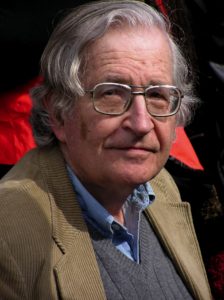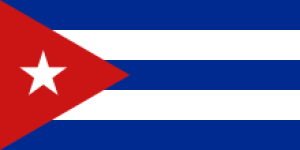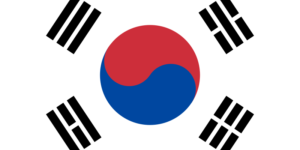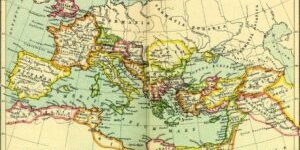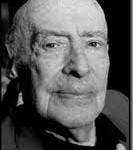Noam Chomsky: A No-Fly Zone Over Ukraine Could Unleash Untold Violence
No Comments yetAs war rages on in Ukraine, diplomacy continues to take a back seat in spite of the heartbreaking devastation Russia’s invasion has wrought. The post-World War II global architecture is simply incapable of regulating issues of war and peace, and the West continues to reject Russia’s security concerns. Moreover, there are calls in some quarters for a declaration of a no-fly zone over Ukraine, although the actual enforcement of such a policy would quickly escalate violence, with potential consequences nearly too horrible to speak. The idea of a no-fly zone is profoundly dangerous, warns Noam Chomsky in this exclusive interview for Truthout.
C.J. Polychroniou: Noam, nearly two weeks into the Russian invasion of Ukraine, Russian forces continue to pummel cities and towns while more than 140 countries voted in favor of a UN nonbinding resolution condemning the invasion and calling for a withdrawal of Russian troops. In light of Russia’s failure to comply with rules of international law, isn’t there something to be said at the present juncture about the institutions and norms of the postwar international order? It’s quite obvious that the Westphalian state-centric world order cannot regulate the geopolitical behavior of state actors with respect to issues of war/peace and even sustainability. Isn’t it therefore a matter of survival that we develop a new global normative architecture?
Noam Chomsky: If it really is literally a matter of survival, then we are lost, because it cannot be achieved in any relevant time frame. The most we can hope for now is strengthening what exists, which is very weak. And that will be hard enough.
The great powers constantly violate international law, as do smaller ones when they can get away with it, commonly under the umbrella of a great power protector, as when Israel illegally annexes the Syrian Golan Heights and Greater Jerusalem — tolerated by Washington, authorized by Donald Trump, who also authorized Morocco’s illegal annexation of Western Sahara.
Under international law, it is the responsibility of the UN Security Council to keep the peace and, if deemed necessary, to authorize force. Superpower aggression doesn’t reach the Security Council: U.S. wars in Indochina, the U.S.-U.K. invasion of Iraq, or Putin’s invasion of Ukraine, to take three textbook examples of the “supreme international crime” for which Nazis were hanged at Nuremberg. More precisely, the U.S. is untouchable. Russian crimes at least receive some attention.
The Security Council may consider other atrocities, such as the French-British-Israeli invasion of Egypt and the Russian invasion of Hungary in 1956. But the veto blocks further action. The former was reversed by orders of a superpower (the U.S.), which opposed the timing and manner of the aggression. The latter crime, by a superpower, could only be protested.
Superpower contempt for the international legal framework is so common as to pass almost unnoticed. In 1986, the International Court of Justice condemned Washington for its terrorist war (in legalistic jargon, “unlawful use of force”) against Nicaragua, ordering it to desist and pay substantial reparations. The U.S. dismissed the judgment with contempt (with the support of the liberal press) and escalated the attack. The UN Security Council did try to react with a resolution calling on all nations to observe international law, mentioning no one, but everyone understood the intention. The U.S. vetoed it, proclaiming loud and clear that it is immune to international law. It has disappeared from history.
It is rarely recognized that contempt for international law also entails contempt for the U.S. Constitution, which we are supposed to treat with the reverence accorded to the Bible. Article VI of the Constitution establishes the UN Charter as “the supreme law of the land,” binding on elected officials, including, for example, every president who resorts to the threat of force (“all options are open”) — banned by the Charter. There are learned articles in the legal literature arguing that the words don’t mean what they say. They do.
It’s all too easy to continue. One outcome, which we have discussed, is that in U.S. discourse, including scholarship, it is now de rigueur to reject the UN-based international order in favor of a “rule-based international order,” with the tacit understanding that the U.S. effectively set the rules.
Even if international law (and the U.S. Constitution) were to be obeyed, its reach would be limited. It would not reach as far as Russia’s horrendous Chechnya wars, levelling the capital city of Grozny, perhaps a hideous forecast for Kyiv unless a peace settlement is reached; or in the same years, Turkey’s war against Kurds, killing tens of thousands, destroying thousands of towns and villages, driving hundreds of thousands to miserable slums in Istanbul, all strongly supported by the Clinton administration which escalated its huge flow of arms as the crimes increased. International law does not bar the U.S. specialty of murderous sanctions to punish “successful defiance,” or stealing the funds of Afghans while they face mass starvation. Nor does it bar torturing a million children in Gaza or a million Uighurs sent to “re-education camps.” And all too much more.
How can this be changed? Not much is likely to be achieved by establishing a new “parchment barrier,” to borrow James Madison’s phrase, referring to mere words on paper. A more adequate framework of international order may be useful for educational and organizing purposes — as indeed international law is. But it is not enough to protect the victims. That can only be achieved by compelling the powerful to cease their crimes — or in the longer run, undermining their power altogether. That’s what many thousands of courageous Russians are doing right now in their remarkable efforts to impede Putin’s war machine. It is what Americans have done in protesting the many crimes of their state, facing much less serious repression, with good effect even if insufficient.
Steps can be taken to construct a less dangerous and more humane world order. For all its flaws, the European Union is a step forward beyond what existed before. The same is true of the African Union, however limited it remains. And in the Western hemisphere, the same is true for such initiatives as UNASUR [the Union of South American Nations] and CELAC [the Community of Latin American and Caribbean States], the latter seeking Latin American-Caribbean integration separate from the U.S.-dominated Organization of American States.
The questions arise constantly in one or another form. Up to virtually the day of the Russian invasion of Ukraine, the crime very possibly could have been averted by pursuing options that were well understood: Austrian-style neutrality for Ukraine, some version of Minsk II federalism reflecting the actual commitments of Ukrainians on the ground. There was little pressure to induce Washington to pursue peace. Nor did Americans join in the worldwide ridicule of the odes to sovereignty on the part of the superpower that is in a class by itself in its brutal disdain for the notion.
The options still remain, though narrowed after the criminal invasion.
Putin demonstrated the same reflexive resort to violence although peaceful options were available. It’s true that the U.S. continued to dismiss what even high U.S. officials and top-ranking diplomats have long understood to be legitimate Russian security concerns, but options other than criminal violence remained open. Organization for Security and Co-operation in Europe observers had been reporting sharply increased violence in the Donbas region, which many — not just Russia — charge was largely at Ukrainian initiative. Putin could have sought to establish that charge, if it is correct, and to bring it to international attention. That would have strengthened his position.
More significantly, Putin could have pursued the opportunities, which were real, to appeal to Germany and France to carry forward the prospects for a “common European home” along the lines proposed by De Gaulle and Gorbachev, a European system with no military alliances from the Atlantic to the Urals, even beyond, replacing the Atlanticist NATO-based system of subordination to Washington. That has been the core background issue for a long time, heightened during the current crisis. A “common European home” offers many advantages to Europe. Intelligent diplomacy might have advanced the prospects.
Instead of pursuing diplomatic options, Putin reached for the revolver, an all-too-common reflex of power. The result is devastating for Ukraine, with the worst probably still to come. The outcome is also a very welcome gift to Washington, as Putin has succeeded in establishing the Atlanticist system even more solidly than before. The gift is so welcome that some sober and well-informed analysts have speculated that it was Washington’s goal all along.
We should be thinking hard about these matters. One useful exercise is to compare the rare appearance of “jaw-jaw” with the deluge on “war-war,” to borrow Churchill’s rhetoric.
Perhaps peacemakers are indeed the blessed. If so, the good Lord doesn’t have to put in overtime hours.
Speaking of the need for a new global architecture and diplomatic practice to adopt to the present-day global dynamic, Putin repeated, in a recent telephone conversation he had with French President Emmanuel Macron, the list of Russia’s grievances against the West, and hinted at a way out of the crisis. Yet, there was, again, rejection of Putin’s demands and, even more inexplicably, complete suppression of this ray of light offered by Putin. Do you wish to comment on this matter?
Regrettably, it is not inexplicable. Rather, it is entirely normal and predictable.
Buried in the press report of the Putin-Macron conversation, with the routine inflammatory headline about the goals of Putin, was a brief report of what Putin actually said: “In its own readout of the call, the Kremlin said that Mr. Putin had told his French counterpart that his main goal was ‘the demilitarization and neutral status of Ukraine.’ Those goals, the Kremlin said, ‘will be achieved no matter what.’”
In a rational world, this comment would be headlined, and commentators would be calling on Washington to seize what may be an opportunity to end the invasion before a major catastrophe that will devastate Ukraine and may even lead to terminal war if Putin is not offered an escape hatch from the disaster he has created. Instead, we’re hearing the usual “war-war” pronouncements, pretty much across the board, beginning with the renowned foreign policy analyst Thomas Friedman. Today The New York Timestough guy counsels, “Vladimir, you haven’t felt the half of it yet.”
Friedman’s essay is a celebration of the “cancellation of Mother Russia.” It may be usefully compared to his reaction to comparable or worse atrocities for which he shares responsibility. He is not alone.
That’s how things are in a very free but deeply conformist intellectual culture.
A rational response to Putin’s reiteration of his “main goal” would be to take him up on it and to offer what has long been understood to be the basic framework for peaceful resolution: to repeat, “Austrian-style neutrality for Ukraine, some version of Minsk II federalism reflecting the actual commitments of Ukrainians on the ground.” Rationality would also entail doing this without the pathetic posturing about sovereign rights for which we have utter contempt — and which are not infringed any more than Mexico’s sovereignty is infringed by the fact that it cannot join a Chinese-based military alliance and host joint Mexico-China military maneuvers and Chinese offensive weapons aimed at the U.S.
All of this is feasible, but it assumes something remote, a rational world, and furthermore, a world in which Washington is not gloating about the marvelous gift that Putin has just presented to it: a fully subordinate Europe, with no nonsense about escaping the control of the Master.
The message for us is the same as always, and as always simple and crystal clear. We must bend every effort to create a survivable world.
Ukrainian President Volodymyr Zelensky condemned NATO’s decision not to close the sky over Ukraine. An understandable reaction given the catastrophe inflicted on his homeland by Russian armed forces, but wouldn’t a declaration of a no-fly zone be a step closer to World War III?
As you say, Zelensky’s plea is understandable. Responding to it would very likely lead to the obliteration of Ukraine and well beyond. The fact that it is even discussed in the U.S. is astonishing. The idea is madness. A no-fly zone means that the U.S. Air Force would not only be attacking Russian planes but would also be bombing Russian ground installations that provide anti-aircraft support for Russian forces, with whatever “collateral damage” ensues. Is it really difficult to comprehend what follows?
As things stand, China may be the only great power out there with the ability to stop the war in Ukraine. In fact, Washington itself seems to be eager to get the Chinese involved, as Xi Jinping could be the only leader to force Putin to reconsider his actions in Ukraine. Do you see China playing the role of a peace mediator between Russia and Ukraine, and perhaps even emerge soon as a global peace mediator?
China could try to assume this role, but it doesn’t seem likely. Chinese analysts can see as easily as we can that there had always been a way to avert catastrophe, along lines that we’ve discussed repeatedly in earlier interviews, briefly reiterated here. They can also see that while the options are diminished, it would still be possible to satisfy Putin’s “main goal” in ways that would be beneficial to all, infringing on no basic rights. And they can see that the U.S. government is not interested, nor the commentariat. They may see little inducement to plunge in.
It’s not clear that they would even want to. They’re doing well enough by keeping out of the conflict. They are continuing to integrate much of the world within the China-based investment and development system, with Turkey — a NATO member — very possible next in line.
China also knows that the Global South has little taste for “canceling Mother Russia” but would prefer to maintain relations. The South may well share the horror at the cruelty of the invasion, but their experiences are not those of Europe and the U.S. They are, after all, the traditional targets of European-U.S. brutality, alongside of which the suffering of Ukraine hardly stands out. The experiences and memories are shared by China from its “century of humiliation” and far more.
While the West may choose not to perceive this, China can certainly understand. I presume that they’ll keep their distance and proceed on their current path.
Assuming that all diplomatic undertakings fail, is Russia really in a position to occupy an entire country the size of Ukraine? Couldn’t Ukraine become Putin’s Afghanistan? Indeed, back in December 2021, the head of the Russian Academy of Science’s Center for Ukrainian Research, Viktor Mironenko, warned that Ukraine could become another Afghanistan. What are your thoughts on this matter? Hasn’t Putin learned any lessons from Afghanistan?
If Russia does occupy Ukraine, its miserable experience in Afghanistan will resemble a picnic in the park.
We should bear in mind that the cases are quite different. The documentary record reveals that Russia invaded Afghanistan very reluctantly, several months after President Carter authorized the CIA to “provide … support to the Afghan insurgents” who were opposing a Russian-backed government — with the strong support if not initiative of National Security Adviser Zbigniew Brzezinski, as he later proudly declared. There was never any basis for the frenzied pronouncements about Russian plans to take over the Middle East and beyond. Again, George Kennan’s quite isolated rejection of these claims was astute and accurate.
he U.S. provided strong support for the Mujahideen who were resisting the Russian invasion, not in order to help liberate Afghanistan but rather to “kill Soviet Soldiers,” as explained by the CIA station chief in Islamabad who was running the operation.
For Russia, the cost was terrible, though of course, hardly a fraction of what Afghanistan suffered — continuing when the U.S.-backed Islamic fundamentalists ravaged the country after the Russians withdrew.
One hesitates even to imagine what occupying Ukraine would bring to its people, if not to the world.
It can be averted. That is the crucial point.
Copyright © Truthout. May not be reprinted without permission.
C.J. Polychroniou is a political scientist/political economist, author, and journalist who has taught and worked in numerous universities and research centers in Europe and the United States. Currently, his main research interests are in U.S. politics and the political economy of the United States, European economic integration, globalization, climate change and environmental economics, and the deconstruction of neoliberalism’s politico-economic project. He is a regular contributor to Truthout as well as a member of Truthout’s Public Intellectual Project. He has published scores of books and over 1,000 articles which have appeared in a variety of journals, magazines, newspapers and popular news websites. Many of his publications have been translated into a multitude of different languages, including Arabic, Chinese, Croatian, Dutch, French, German, Greek, Italian, Japanese, Portuguese, Russian, Spanish and Turkish. His latest books are Optimism Over Despair: Noam Chomsky On Capitalism, Empire, and Social Change (2017); Climate Crisis and the Global Green New Deal: The Political Economy of Saving the Planet (with Noam Chomsky and Robert Pollin as primary authors, 2020); The Precipice: Neoliberalism, the Pandemic, and the Urgent Need for Radical Change (an anthology of interviews with Noam Chomsky, 2021); and Economics and the Left: Interviews with Progressive Economists (2021).
You May Also Like
Comments
Leave a Reply
